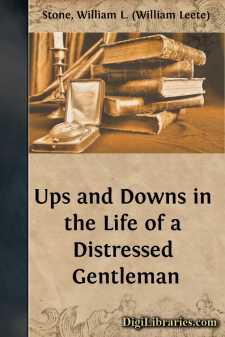Categories
- Antiques & Collectibles 13
- Architecture 36
- Art 48
- Bibles 22
- Biography & Autobiography 815
- Body, Mind & Spirit 144
- Business & Economics 28
- Children's Books 18
- Children's Fiction 14
- Computers 4
- Cooking 94
- Crafts & Hobbies 4
- Drama 346
- Education 58
- Family & Relationships 59
- Fiction 11829
- Games 19
- Gardening 17
- Health & Fitness 34
- History 1378
- House & Home 1
- Humor 147
- Juvenile Fiction 1873
- Juvenile Nonfiction 202
- Language Arts & Disciplines 89
- Law 16
- Literary Collections 686
- Literary Criticism 179
- Mathematics 13
- Medical 41
- Music 40
- Nature 179
- Non-Classifiable 1768
- Performing Arts 7
- Periodicals 1453
- Philosophy 65
- Photography 2
- Poetry 896
- Political Science 203
- Psychology 44
- Reference 154
- Religion 515
- Science 126
- Self-Help 85
- Social Science 82
- Sports & Recreation 34
- Study Aids 3
- Technology & Engineering 59
- Transportation 23
- Travel 463
- True Crime 29
Our website is made possible by displaying online advertisements to our visitors.
Please consider supporting us by disabling your ad blocker.
Ups and Downs in the Life of a Distressed Gentleman
Description:
Excerpt
INTRODUCTION.
The best parallel to the conduct of the silly ostrich, that thrusts her head into a thicket, or the sand, and fancies she is thereby hidden from view, occurred some years since in the village of Catskill. A printer, who was neither an observer of the Sabbath, nor a member of the Temperance Society, went to a grocery one Sunday morning for a bottle of gin. On coming out of the dram-shop, with his decanter of fire-water, he perceived that the services in the church near by, were just closed, and the congregation were returning to their homes. Not having entirely lost his self-respect, and unwilling to be seen in the public street by the whole village, on such a day, and with such a burden, he hastily thrust his hand, holding the bottle, behind, for the purpose of concealing it underneath the skirts of his coat: and in this way, apparently with the greatest possible unconcern, the disciple of Faust walked up the street, just in advance of the congregation. Unfortunately, however, in his haste he had thrust his decanter quite through between the folds of his coat-skirts, so that his hands and the neck of the bottle only were concealed; while, to the irresistible merriment of the people, the object which he wished to hide was ten times more the subject of observation than it could have been before. Very much in the same predicament stands the writer of the following pages. His intention was to publish them anonymously, if at all. But an unauthorized annunciation of his name, in the Booksellers' Advertiser, a few weeks since, has rendered the effort as abortive as the trick of the foolish bird, and the expedient of the printer. The mask, thus torn, has therefore been entirely doffed.
And now a few words as to the sketches themselves.
Whatever else may be said of the writer, it cannot be predicated of him, as by Addison of a certain class of biographers of his day, "that they watched for the death of a great man, like so many undertakers, on purpose to make a penny by him." The subject of this little volume is neither a great man, nor, happily, is he yet numbered among the dead. Should it then be asked, Why write about small men at all, or, in any event, until after they are dead? The answer is at hand: it is the fashion of the times in which we live. The present is the age of small men, whose lives are necessarily written while living, lest, when dead, and all hope of reward is past, nothing should be remembered to be said of them. What, moreover, can be more agreeable, than for a man to read his own biography, especially when drawn by the partial hand of friendship, and retouched in each successive edition, as new circumstances require, new virtues are disclosed, and new deeds demand a record? It may be likened to the reading of one's own epitaph, wherein one can see to it for himself, that Shakspeare did not speak advisedly when he wrote, "It is the evil only that men do that lives after them, while the good is interred with their bones." And besides, biography is history; and history has been defined to be "philosophy teaching by example." By having his own biography in his library, therefore, a man may become his own philosophical teacher, and save the expense of a professor; while, at the same time, he can enjoy the consolation of seeing how mankind around him are improving themselves by the study of his example....


